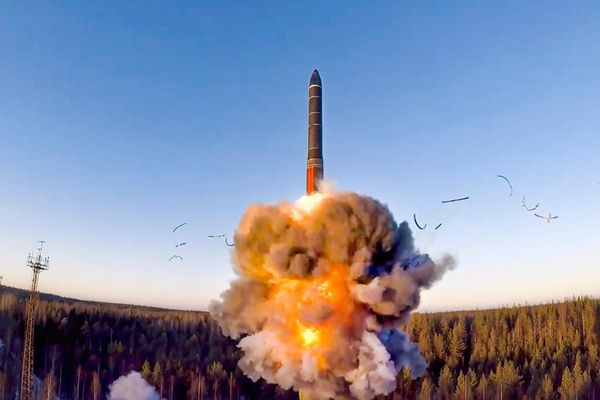
The man who blew the whistle on alleged war crimes committed by Australian troops in Afghanistan will face prosecution.
Lawyers for the former military lawyer David McBride withdrew an application to have him protected under whistleblower laws after the commonwealth moved to suppress expert evidence.
McBride is being prosecuted for allegedly leaking a cache of documents to the ABC that informed a series on alleged war crimes in Afghanistan and led to a much-publicised federal police raid on the ABC’s Sydney offices in 2019.
Two experts were set to support McBride’s case, but commonwealth lawyers sought to have their testimony quashed under public interest immunity laws. The laws suppress information that would prejudice the public interest if they were made public.
McBride said there was little prospect of success without their evidence.
“The government played the national security card to the absolute hilt,” he told media outside the ACT supreme court on Thursday.
His lawyer, Mark Davis, said it was common for sensitive material – such as what may have been included by the two experts – to come before the courts. The judge has the power to then close the court to the public and media.
“If I could show it to you, the material is not that controversial,” Davis said. “But [judging from the move to suppress the evidence] you would think it’s identities of agents or codes.”
McBride now faces a jury trial on five charges, including the unauthorised disclosure of information, theft of commonwealth property and breaching the Defence Act.
The Brereton report, that resulted in part from allegations stemming from McBride’s disclosures, found credible evidence of war crimes by Australian special forces while serving in Afghanistan, including 39 murders, executions and allegations of torture.
Kieran Pender, a senior lawyer with the Human Rights Law Centre, said the commonwealth should use its powers to end the prosecution.
“Dropping the case against David McBride is the right thing to do – there is no public interest in this prosecution,” he said.
“The Brereton report underscored the importance of whistleblowing to its findings and the need for the Australian defence force to protect and empower whistleblowers.
“Instead, David McBride finds himself on trial.”
The acting executive director of the Centre for International Justice, Fiona Nelson, said whistleblowers, journalists, survivors and civil society groups had faced “real adversity in getting the word out” about the alleged conduct of Australian special forces in Afghanistan.
Nelson said the government needed to show a “genuine commitment” to addressing alleged breaches of the laws of war and to the “full public disclosure of the truth of the Australian military’s involvement in Afghanistan”.
“Prosecuting the whistleblowers completely undermines any such commitment.”
The federal government has already committed to overhauling the Public Interest Disclosure Act, which was enacted in 2013.
A 2016 review by Philip Moss found the laws were not properly supporting whistleblowers.
Critics of the laws have said they do not do enough to proactively protect and support whistleblowers, and give little protection to those who publicly blow the whistle about matters of national security.







